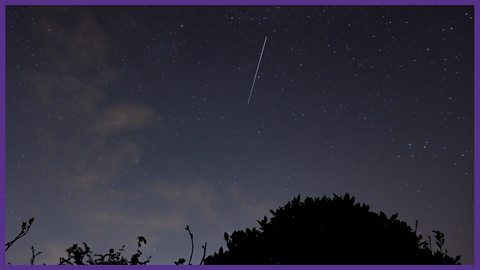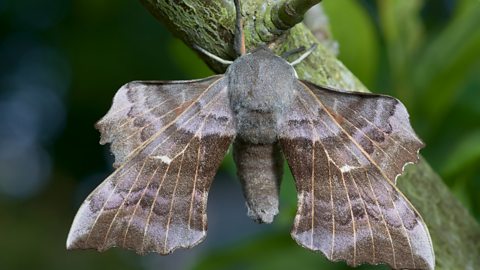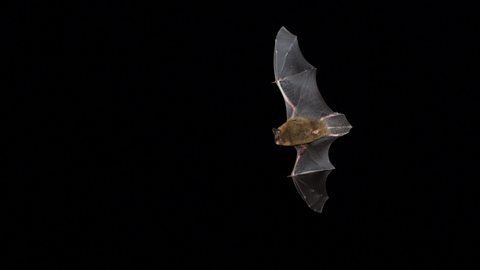You might remember as a child being up past bedtime, or on a night time drive, and having a chance encounter with a shooting star - something you possibly remember as a special moment. Many of us go years without seeing another! But, did you know that, with a bit of planning and prediction, you have a good chance of seeing a whole shower of them…
This guide, created in partnership with the , gives you and your child the best chance of seeing a meteor (or two!) crashing through our atmosphere…

Top tips for seeing a meteor shower
If you live in a city or light polluted area, try and head out to a dark sky area. That could be a local outdoor space without lighting or a national park further away. If you can’t get away but have garden, try to switch off any unnecessary lights!
Pick a location without too many buildings or tall trees, where you and your child can see as much of the sky as possible.
Check the phase of the Moon on your chosen night – moonlight, especially when the Moon is at a quarter phase or greater, can dampen your viewing experience just as any bright light would.
Spend 30 minutes getting your eyes adjusted to the dark – don’t look at mobile phone or tablet screens. As your eyes become adjusted to the darkness, you’ll find that you’re able to spot fainter objects.
Meteor spotting requires patience – many people spend hours outside trying to catch a glimpse of a shooting star (and it’s worth it when you see one). Make sure you have blanket or a reclining chair to keep the family comfortable!
Don’t use binoculars or a telescope – the only tools you need are your eyes. Meteors streak very quickly across the sky and can appear in lots of different directions so looking through binoculars or a telescope will only restrict how much of the sky you can see. Blink and you might miss it!

When's the best time to see a meteor shower?
You might think that seeing a meteor is a game of pure chance on any given night, however, there are annual meteor showers, which are relatively easy to predict and will often provide many meteors every hour.
Use the guide below to plan a stargazing evening this summer. Fingers crossed for a clear sky!
Along with the name of the annual shower, you can see the 'radiant', which is the point within a constellation where the meteor shower will appear to radiate from in the night sky. For example, the annual 'Perseid' meteor shower in August will radiate out from Perseus. Use a star app, or plan your observation beforehand to make sure that you're facing in the right direction…
| Meteor shower | Radiant (constellation) | Peak activity time/date | Peak activity rate (meteors per hour) | Other info |
|---|---|---|---|---|
| Quadrantids | Bootes | Early January | 120 | Bluish- or yellowish-white meteors with fine trains |
| Lyrids | Lyra | Late April | 10-20 | Bright fast meteors, some with trains. |
| Eta Aquariids | Aquarius | Early May | 20-60 | Short, swift streaks, producing long trains. |
| Delta Aquariids | Aquarius | Late July | 20 | |
| Perseids | Perseus | Mid-August | 90-100 | Many bright, fast meteors with trails |
| Draconids | Draco | Early October | 10 | In rare instances, there have been many hundreds of meteors per hour |
| Orionids | Orion | Late October | 10-20 | Fast with fine trains. |
| Taurids | Taurus | Mid-November | 5 | Very slow meteors. |
| Leonids | Leo | Mid-November | 10 | Bright meteors with a high percentage of persistent trains. |
| Geminids | Gemini | Mid-December | 120-150 | Plenty of bright, intensely coloured meteors, but aren't likely to produce long trails. |
| Ursids | Ursa Minor | Late December | 10 |
You can often find which specific night to expect these showers closer to the day, so be sure to keep an eye out online!
Even during the summer months, it can still get cold outside so make sure to have a hot drink and have extra layers to hand to keep yourself warm.

is a science and discovery centre, as well as an educational charity. The Centre has welcomed almost 5 million visitors since opening in 2001, and has a mission to support, educate and inform using the inspiration of space science and exploration. #SpaceForEveryone

More from łÉČËÂŰĚł Bitesize Parents' Toolkit…
Parents' Toolkit
Fun activities, real-life stories, wellbeing support and loads of helpful advice - we're here for you and your child.

Megan McCubbin: How to spot UK wildlife this summer
Springwatch presenter and zoologist Megan McCubbin has advice for families to discover the amazing wildlife that call this country home.

How to find the constellations
From the little bear, to the swan, there are plenty of asterisms to teach your child this summer.

How to spot the International Space Station
The ISS has been whizzing around Earth for over 20 years - here's how you can spot it.

How to make a moth magnet
Moths are one of the most diverse animals we have in the UK - follow this guide to see them up close!

How to spot bats in the UK
Where to find them, how to spot them and some bat facts to wow the kids!
